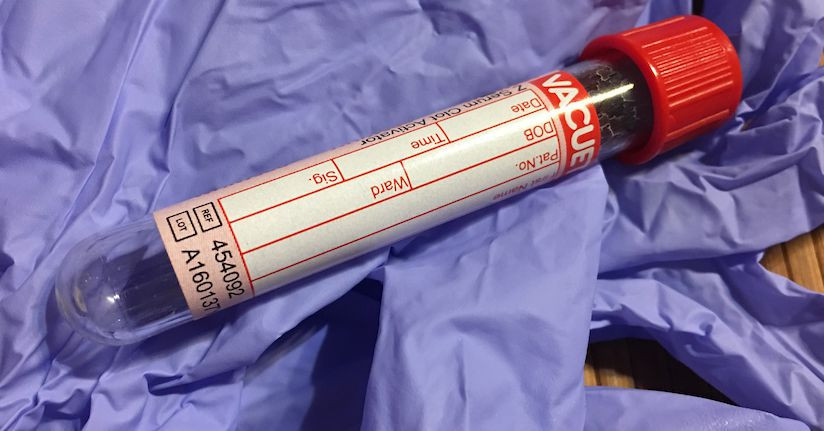A Blood Test to Diagnose Concussions, Traumatic Brain Injuries
Despite increased awareness of the risk of concussions—also referred to as mild to moderate traumatic brain injuries (TBI)—many go undiagnosed. That's because symptoms can be hard to detect and some patients don’t develop any symptoms until several days after the injury. A simple blood test might solve this problem, according to a new study published in JAMA Neurology. In the study, researchers had a 97% accuracy rate in detecting evidence of concussions in patients up to a week after the injury occurred. The test also indicated which patients were in need of lifesaving brain surgery following a TBI. Findings are based on data from 600 patients over three years.
The test looks for a biomarker called glial fibrillary acidic protein, or GFAP. These proteins are found in the glial cells that surround neurons in the brain. GFAP are released when a brain injury occurs. Because these proteins pass the blood-brain barrier and enter the bloodstream, a blood test shows their presence.
The test could dramatically reduce the need for CT scans. Although CT scans are currently the best way to diagnose brain lesions from TBI, they are expensive and require exposure to radiation. This study focused on adults, but its findings could be particularly important for children. Doctors rarely do CT scans on children because they are more sensitive to radiation and its side effects than adults are. In a previous study, published last fall, researchers checked for GFAP in the blood of 152 children with mild to moderate TBIs. The blood test was 94% accurate in detecting concussions.
Further research is required to confirm these results, but the early findings are exciting. This research could change the way concussions are diagnosed for anyone who receives a head injury, not just children. With better diagnosis comes better treatment, which could help reduce the risk of developing long-term problems like headache, dizziness, memory loss, depression, and photophobia.
REFERENCES
Orlando Health. (2016, March 28). Study: Simple Blood Test Can Detect Evidence of Concussions Up to a Week After Injury. [Press release]. Retrieved from http://www.eurekalert.org/pub_releases/2016-03/m-...
Papa, L.; Brophy, G. M.; Welch, R. D.; et al. (2016). Time Course and Diagnostic Accuracy of Glial and Neuronal Blood Biomarkers GFAP and UCH-L1 in a Large Cohort of Trauma Patients With and Without Mild Traumatic Brain Injury. JAMA Neurol. Published online March 28, 2016. doi:10.1001/jamaneurol.2016.0039.
Papa, L., Zonfrillo, M. R., Ramirez, J., Silvestri, S., Giordano, P., Braga, C. F., et al. (2015). Performance of Glial Fibrillary Acidic Protein in Detecting Traumatic Intracranial Lesions on Computed Tomography in Children and Youth With Mild Head Trauma. Academic Emergency Medicine,22(11), 1274-1282.

TheraSpecs® Glasses for Light Sensitivity
Find the glasses that fit your needs and lifestyle, and stay protected from screens, fluorescents, unwanted blue light, sunlight, flashing lights, and more.
Shop Now



